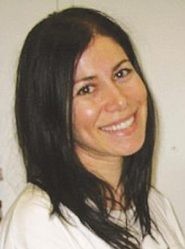Modern day foxes roaming the Temple Mount
In these days leading up to Tisha b’Av, the Temple Mount issue is coming to a head. Under the cover of “holiness” and of “worship” at a place so sacred, murder was committed.
Two Israeli policemen were fatally shot by Muslim terrorists feigning worship at what to Muslims is a holy site and to Jews is the holiest site, Har Habayit or the Temple Mount.
The two Israelis were Druze Arabs, our brothers and sisters in destiny. In a sense, I consider them a part of Am Yisrael. Anyone who throws their hat in with the Jewish people, who serves Israel so loyally, and who tragically has to pay the highest price to be in Israel — we are one with them.
In one of the sad dirges, the kinot, we murmur on Tisha b’Av, recalling the destruction of the ancient Holy Temple, there is a phrase, “If a priest or a prophet shall be murdered on the Mountain of G-d (Har Habayit)…” When I heard the terrible news, this was the verse that entered my mind. Although not literally true, two protectors of Israel were murdered on the Mountain of G-d; so in a sense they are the modern prophet and priest in the tragic story echoing a precedent from thousands of years ago.
I mull over verses from the book of Isaiah, and I wonder, which verses would be the ones Isaiah would utter today?
In Jewish tradition, the Temple, or the altar, is a place reserved for holy worship and service. Even to use it as a place of refuge from death is frowned upon. A temple is not an asylum city, an ir miklat, not a space that can be used to protect an unintentional killer from revenge. In the book of Kings, when Yoav was running away from those in hot pursuit he finds his way to the altar. He grabs onto its horns as a way of protecting himself. No, tradition teaches. A holy place is not used in conjunction with loss of life. The altar is the inner circle in concentric circles of holiness; there are spatial limits on such places.
Not that murder is ever OK, but paying attention to the irony of adding salt to the wound by committing the worst act in the holiest place is part of the Jewish message and teaching.
Last week, Arab terrorists used a holy site cynically. A place of prayer became a place to store lethal weapons — all under the watch of The Waqf, the Muslim authority responsible for the Al Aksa mosque on the Temple Mount in accord with the compromise Israel negotiated with Jordan after Israel won back East Jerusalem in the Six Day War (a “compromise” that in fact ceded Jewish rights of prayer at this holy site).
The Talmud paints a picture of the utter desolation and destruction of the Temple (“foxes roam there”), utterly lacking its former glory. Now, modern day foxes certainly were roaming there, before our very eyes.
Consequently, metal detectors were put in place for anyone entering the site. Which begs the question as to why this obvious security measure was not in place up until now — as it is for all Jews entering the plaza of the Western Wall, not to mention many other public places in Israel.
The only people inconvenienced by this increased security measure are Muslims, who, unlike the rest of us, were allowed unfettered access to the Temple Mount.
Yet, while I strain to hear the calls of condemnation for the horror perpetrated at the Muslim Al-Aksa mosque, instead the anger has been over the newly implemented security measure, an anger carried to the extreme of Muslims making a show of refusing to enter Al Aksa through the newly secure entrance, instead prostrating themselves in prayer just outside of it. That’s in addition to their “Day of Rage,” an attempt to fan the flames for a third intifada.
In sum: Two Israelis are murdered in what is considered a Muslim holy site, and the anger is not about the murder, not about responsibility, not about rectification, but about weighing the merits of a (belated) security measure. How outrageous and infuriating! Yet, sadly, not surprising.
These are among the core issues that must be addressed in light of this terrible tragedy.
Related to this is the Temple Mount conversation that Jews must engage in, to which I turn next week.
Copyright Intermountain Jewish News

 47.0°,
Fair
47.0°,
Fair 




